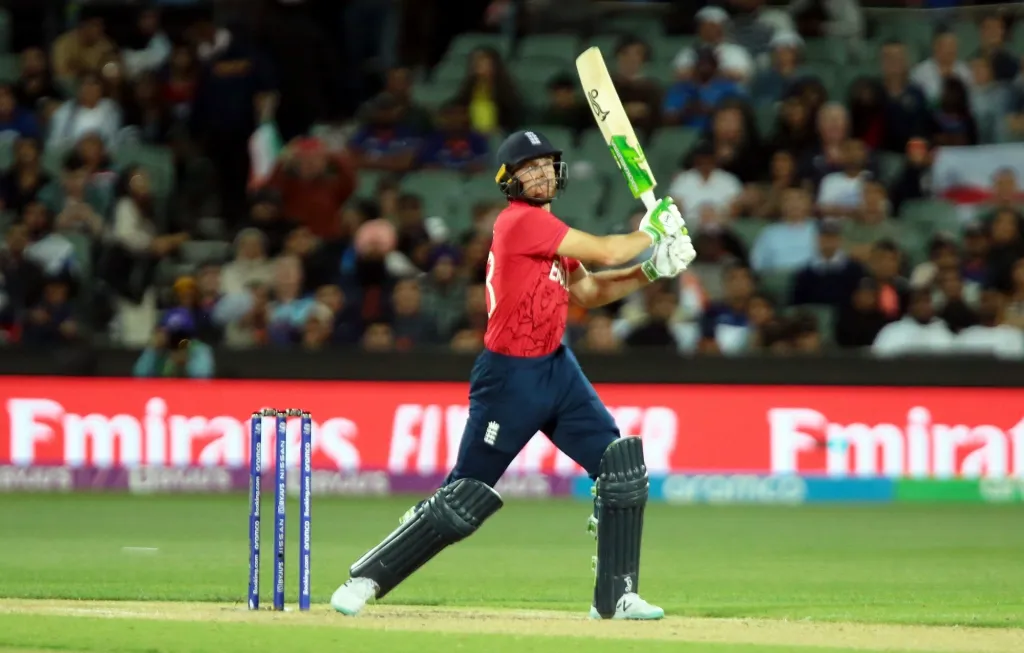In a commanding performance, England overpowered the West Indies, achieving a comfortable seven-wicket victory in the second T20 International match, thereby taking a 2-0 lead in the five-match series.
Jos Buttler displayed a stunning return to form, hammering an impressive 83 runs off just 45 balls. Operating primarily from the No. 3 position, Buttler's innings featured a remarkable mix of skill and power, including eight fours and six sixes. His partnership with Will Jacks was crucial, as the duo combined for a century partnership that propelled England to their target of 159 runs with more than five overs remaining. This match marked Buttler's 26th fifty-plus score in T20 internationals, further solidifying his status as a premier performer in the format.
The match unfolded at Kensington Oval, where England's bowling attack set the tone by decisively winning the toss and opting to field. This strategy paid off handsomely, as the West Indies struggled early on, losing three wickets during the powerplay. Saqib Mahmood was particularly effective, claiming two wickets and continuing a strong form from the start of the series. Despite Rovman Powell’s valiant effort of scoring 43 runs off 41 balls, support was limited for the West Indies, with Dan Mousley and Liam Livingstone exploiting the situation to claim four wickets between them.
England's response began on a tumultuous note, losing Phil Salt to the very first ball of their innings. However, Buttler and Jacks quickly established control, solidifying England’s chase through a powerful 129-run partnership off just 72 balls. The sheer dominance of this partnership effectively quashed any hopes the West Indies might have had of mounting a comeback after Salt's early dismissal.
The West Indies started well with Akeal Hosein making an impact with his opening delivery, which resulted in Salt’s dismissal. Buttler, though initially subdued, soon found his rhythm, hitting a string of boundaries that contributed to England's mounting score. While the West Indies needed early breakthroughs with the new ball, their efforts fell short. After managing a tight start, England rapidly gathered momentum during the powerplay, eventually cozily sitting at 56 for 1.
Buttler ignited the innings once he established his footing, scoring aggressively against the opposition bowlers, particularly against Roston Chase and Terrance Hinds, who was making his T20 debut. Within moments, Buttler reached a half-century, securing it in just 32 balls. His dismissal soon after, along with Jacks', did little to deter England's advance as Liam Livingstone accelerated the scoring, sealing the match with a six.
The West Indies faced significant challenges with their batting lineup. Although the pitch exhibited some movement early on, Mahmood was able to capitalize by claiming critical wickets during the powerplay. The West Indies were under immediate pressure, tumbling to 35 for 3 in the fourth over—a position only slightly better than their start in the first T20I.
To address the alarming collapse, Rovman Powell partnered with Nicholas Pooran, although their partnership lacked fluidity. Both players attempted to stabilize the innings, striking the occasional boundary. Their partnership totaled 35 runs but took a painstaking 43 balls, revealing the mounting pressure on the West Indies batting.
Although Powell eventually found his rhythm with a six off Livingstone, the West Indies' innings suffered another setback when Mousley struck with a well-placed yorker, dismissing Powell for 43 runs. The middle and lower order did manage to find some runs, as Gudakesh Motie, Romario Shepherd, and Matthew Forde contributed late runs, lifting the West Indies' total to 158 for 8.
Limited boundaries characterized the early-middle stages for West Indies, but the tailender’s efforts provided a semblance of respectability to the overall score. Motie took advantage of extra pace, and both Shepherd and Forde struck crucial boundaries as the innings drew to a close. The extra runs, however, were insufficient to defend in what has traditionally proven a challenging run chase on the ground.
The West Indies’ attempts at early wickets coupled with their inability to restrict runs in the middle overs ultimately led to their downfall. England’s experience and match tactics shone through, once again making them formidable opponents in the T20 arena.
As the two sides prepare for the next match in the series, the West Indies will need to regroup and rethink their strategy if they are to turn the tide against a confident England side. With the series now stretching to five encounters, the excitement and unpredictability of T20 cricket will continue to captivate fans, particularly in a spirited cricketing nation like India. The dynamics of this series lay the groundwork for an intriguing battle ahead.

